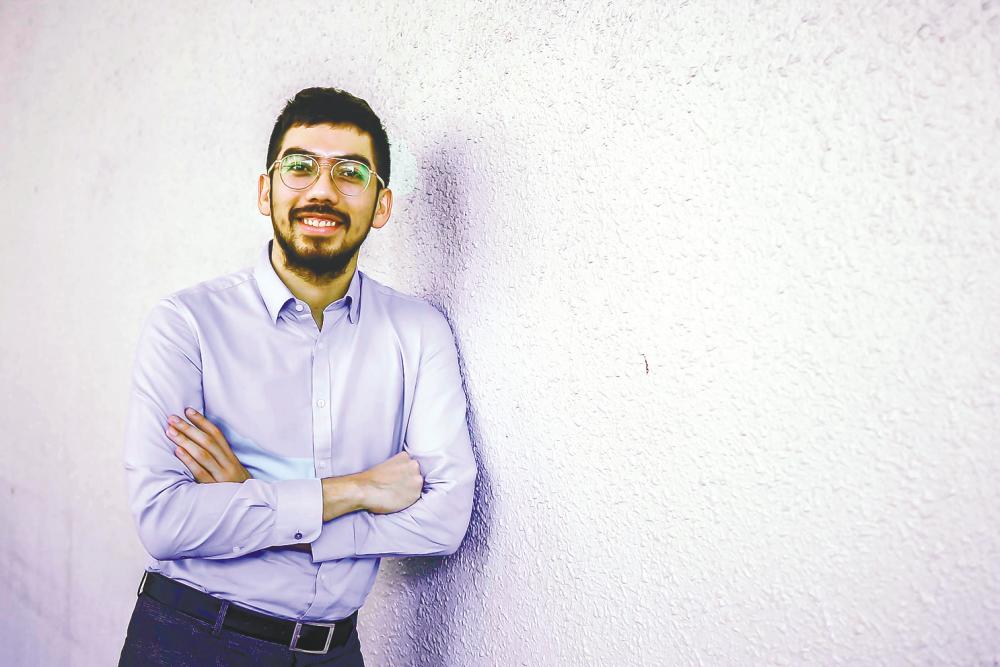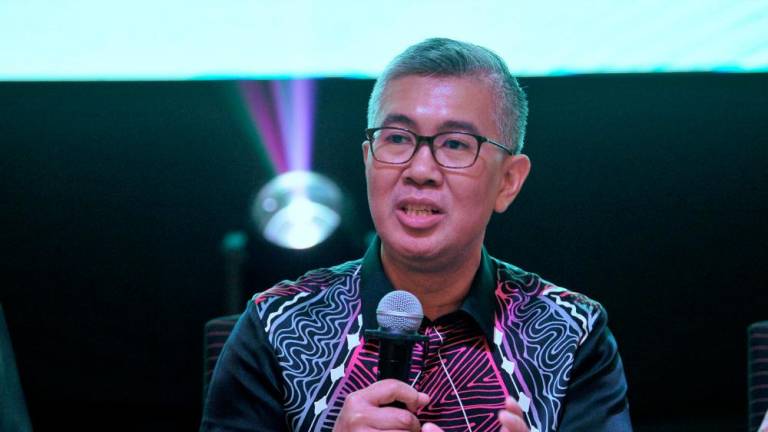WHEN Kyoto Protocol dropped its latest album, The Pen is Mightier, last year, the five-member band hit the roads with tunes blasting for its Milik Kita National Tour.
Comprising Fuad Alhabshi (vocals/guitar), Shakeil Bashir (bass/vocals), Gael Oliveres (keyboards/vocals), Hairi Haneefa (guitar), and Shan Reddy (drums), the rock band shared its music with fans across the country in Ipoh, Kuala Lumpur, Johor Baru, Penang, Kota Kinabalu, and Kuching at seven sponsored free-of-charge shows.
From its first local chart-topping Pussycat, to Jelita featuring Liyana Fizi, KL I Love You, and, now, Delta Wing and The End from The Pen is Mightier, fans would probably have noticed and progressed with Kyoto Protocol’s musical growth.
With The End and Delta Wing appearing on Spotify charts, like Spotify Top 50 Viral Chart Malaysia and New Music Friday, the band counts this as validation for its music going in the right direction – all the while juggling day jobs and without a record label.
“Because we were busy with the production [of The Pen is Mightier] in the first half of last year, we hardly played any shows actually,” frontman Fuad said in a recent interview.
“I’m now looking forward to just putting down the pen for a while, and going out there and playing more shows.”
According to Fuad, the band has plans on spreading its wings regionally to countries like Thailand, Indonesia, and the Philippines, but one “big project” that is currently in the works is its Milik Kita documentary that was shot while on tour.
Slated for release later this year, the documentary is the band’s idea of immortalising the concept of live shows in the diverse music scenes happening in the country now.
Fuad explained: “It’s capturing the essence and that feeling of – not just for us, but for all the other bands – what it’s like to be in a live show in 2018; because if you look back, nobody has really been documenting this kind of stuff.”
He said that every band will naturally have its own footage of its concert, but there’s nothing for Malaysians to kind of look back, “so it’s like oh, this is what the music scene is like, what are the problems we’re facing, and what are we all looking forward to in the future”.
Fuad added: “Say 10 years down the road, maybe rent gets too expensive and live music completely dies out, or everybody just streams on YouTube. Maybe the scene will completely change.
“But I hope (the documentary) will serve as a monument to just kind of look back on, and just go, oh, I remember those days where we used to go to live shows.”
He said he was initially inspired by Faharasat, a similar but more visual and immersive style of a documentary about a post-rock guitarist who travels to remote locations to play music.
The director of Faharasat, Iddin Shah, is also responsible for Milik Kita.
Fuad hopes that their documentary will take people closer to what it is like being in a live show in the country, and how to check out local acts even if you’re out of town, that is, beyond the Klang Valley.
The music scene varies from city to city, according to Fuad.
He said the documentary is a chance for different music scenes to learn about genres other than their own. This also means getting people who are usually more tuned into mainstream music to explore outside of their comfort playlists.
At the same time, it clears the mist on alternative scenes like punk, which stereotypically are brandished as “devil worshippers” when actually they’re “just anti-establishment”, Fuad added.
“All the moshing and the fighting, I mean, it’s different, but it’s not bad just because it looks like violence on the surface. It’s just part of their release.
“It’s part of what it is to be young. It’s that process of finding your own identity.”
Doing the documentary also offered Fuad and the rest of the band a learning experience.
The band noticed that in places like Sarawak, the musicians are trying to incorporate indigenous styles of music like the sape into their work – which marries “a sense of cultural identity with a sense of innovation” – and that even back in the 1990s, Johor Baru had a more vibrant independent music scene than Kuala Lumpur.
If you ask Fuad to describe his own feeling when performing on stage, he would say that “it’s a strange rite where you put yourself in a very vulnerable position, where a piece of your life is out there for everyone to consume”.
“Cause that’s what song really is,” he explained. “It’s just some of your life experiences for people to basically judge. That’s what people are doing when they’re listening, trying to figure out whether they like it or not.
“Having the sense that people accept what you say, that’s level one. Level two is [when the song] resonates with them, and makes them feel better about their situation ... [like] take them away or make them think [of] somebody else who’s like that [and] that they should help.”
As the Kyoto Protocol frontman puts it, “that’s the power of music, to actually express in the motion and make a change”.














